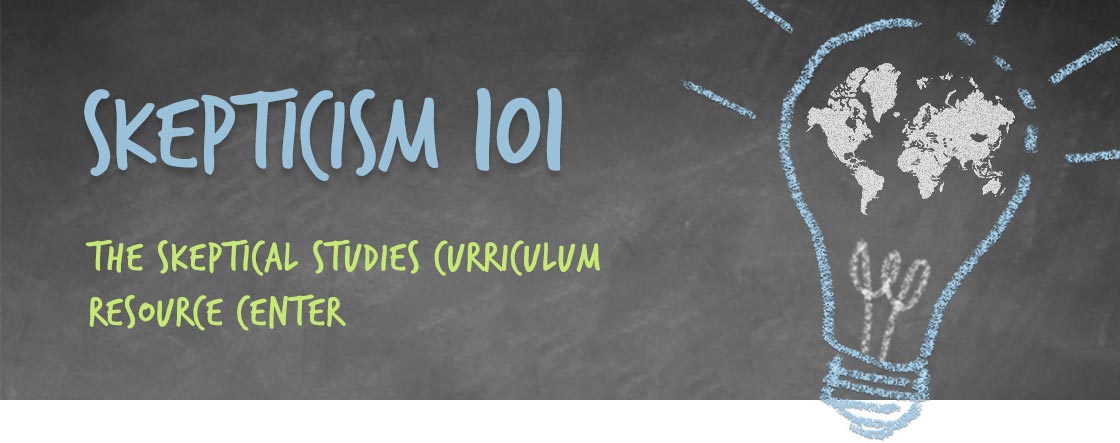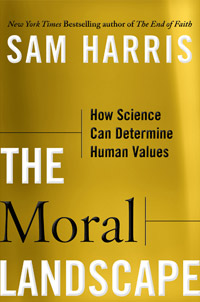You Are Browsing Resources on:
philosophy of science and scientific method
In this talk, Dr. Peter Boghossian argues that faith-based processes are unreliable and unlikely to lead one to the truth. Since our goal as knowers is to have more true beliefs than false ones, faith, as a process for getting to the truth, should be abandoned in favor of other, more reliable processes. The talk was followed by a question and answer session from the audience. This presentation, sponsored by the Freethinkers of Portland State University and published by philosophynews.com, was given by Dr. Peter Boghossian of Portland State University on January 27, 2012.
In this lecture based on a chapter in his book, The Believing Brain, Dr. Shermer outlines how controversies in science are resolved by looking at the centuries-long debate over the nature of the cosmos, its size and origin, and what those fuzzy patches in the sky are: nebula within the Milky Way galaxy or island universes? It was not clear until well into the 20th century that the Milky Way was not the entire universe, until Edwin Hubble working at Mt. Wilson Observatory determined that the universe is much larger than anyone had previously imagined it to be.
DOWNLOAD THIS RESOURCE
(72 MB Powerpoint Presentation)
Evolution, Intelligent Design, and the Battle
for Science and Religion
Evolution happened, and the theory describing it is one of the most well-founded in all of science. Then why do half of all Americans reject it? There are religious and political reasons, and in Why Darwin Matters, historian of science and bestselling author Dr. Michael Shermer diffuses these fears by examining what evolution really is, how we know it happened, and how to test it. Dr. Shermer then discusses what science is through a brief history of the evolution-creation controversy—from the Scopes’ Monkey Trial of 1925 through the creationism trials of the 1960s and 1970s, to the landmark U.S. Supreme Court case of 1987, to the Intelligent Design controversies of the 1990s and 2000s—demonstrating clearly how and why creationism and Intelligent Design theory are not science. Dr. Shermer builds a powerful case for evolution as the theory that most closely parallels the Christian model of human nature and the conservative model of free market economics. Dr. Shermer was once an evangelical Christian and a creationist, and is now one of the best-known public intellectuals defending evolutionary theory, so Why Darwin Matters provides readers with an insiders’ guide to the evolution-creation debate, in which he shows why creationism and Intelligent Design are not only bad science, they are bad theology, and why science should be embraced by people of all beliefs.
DOWNLOAD THIS RESOURCE
(267 MB Powerpoint Presentation)
In this introductory lecture to the study of skepticism, Dr. Shermer defines skepticism and what it means to be a skeptic, employing numerous examples from the pages of Skeptic magazine to illustrate what science is and how it works, how to think like a scientist, how to think about weird things, what constitutes an extraordinary claim and why we require extraordinary evidence for it, and how to test claims of the paranormal.
DOWNLOAD THIS RESOURCE
(259 MB Powerpoint Presentation)
Have you ever felt like you knew what someone was going to say before they said it? Or that you had a feeling that the phone was going to ring and it did? Have you had a “psychic” tell you something about yourself that s/he couldn’t know without reading your mind? Have you ever thought you had a “sixth sense”? What explains this? Many have experienced one or more of these events, described them as extraordinary, and attributed them to extrasensory perception (ESP). In this exercise you can take your students through the process of finding out (scientifically) whether or not they, or someone they know, has ESP. Designed for grades 9–12. This in-class exercise was created by the James Randi Educational Foundation (JREF) and it answers questions such as: (1) What is ESP? (2) How I you test it? and (3) What is the history of this research?
DOWNLOAD THIS RESOURCE
(643 kb PDF)
This book was required reading for the following courses: (1) “Evolution, Economics, and the Brain” taught by Michael Shermer, and (2) “Knowledge, Value & Rationality” taught by Peter Boghossian.
Sam Harris’s first book, The End of Faith, ignited a worldwide debate about the validity of religion. In the aftermath, Harris discovered that most people—from religious fundamentalists to nonbelieving scientists—agree on one point: science has nothing to say on the subject of human values. Indeed, our failure to address questions of meaning and morality through science has now become the most common justification for religious faith. It is also the primary reason why so many secularists and religious moderates feel obligated to “respect” the hardened superstitions of their more devout neighbors.
—Amazon
In this explosive new book, Sam Harris tears down the wall between scientific facts and human values, arguing that most people are simply mistaken about the relationship between morality and the rest of human knowledge. Harris urges us to think about morality in terms of human and animal well-being, viewing the experiences of conscious creatures as peaks and valleys on a “moral landscape.” Because there are definite facts to be known about where we fall on this landscape, Harris foresees a time when science will no longer limit itself to merely describing what people do in the name of “morality”; in principle, science should be able to tell us what we ought to do to live the best lives possible. Bringing a fresh perspective to age-old questions of right and wrong and good and evil, Harris demonstrates that we already know enough about the human brain and its relationship to events in the world to say that there are right and wrong answers to the most pressing questions of human life. Because such answers exist, moral relativism is simply false—and comes at increasing cost to humanity. And the intrusions of religion into the sphere of human values can be finally repelled: for just as there is no such thing as Christian physics or Muslim algebra, there can be no Christian or Muslim morality.—Skeptic
BUY THIS BOOK
from Shop Skeptic
← PREVIOUS PAGE












